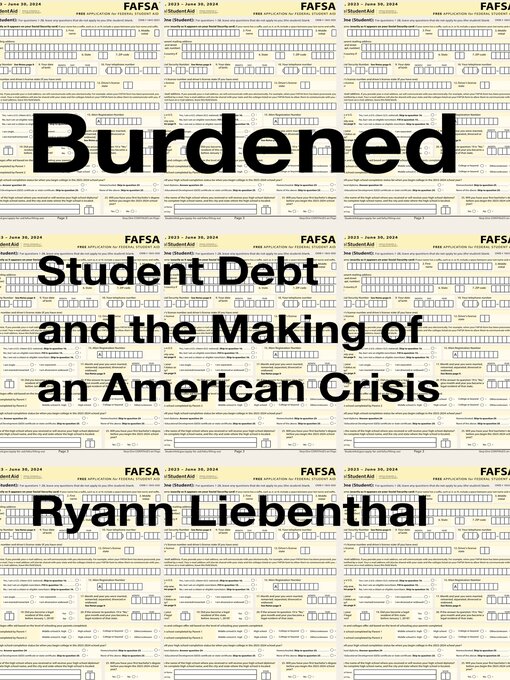*ONE OF THE NEW YORKERS BEST BOOKS OF 2024*
"A powerful argument for reforming this system."—The New York Times
An urgent investigation of student debt in America revealing the corrupt systems, rotten policies, and bad actors that have created a $1.7 trillion crisis.
College costs more today than ever and is worth less. Tuition at public colleges has more than tripled in the past 50 years. Over the same period student debt has grown from virtually nothing to more than $1.7 trillion, second only to home mortgages.
Skyrocketing student-loan burdens are leading an entire generation to put off the traditional milestones of adulthood: buying homes, getting married, starting families, and saving for retirement. The burden weighs heavier on women and black Americans, and with almost 10 percent of student debtors now over the age of 60, it is a crisis no longer limited to the young.
Ryann Liebenthal's Burdened tells the maddening story of how the power plays of legislators and presidents, the commodification of higher ed, and the rapacious practices of for-profit colleges and private lenders have created today's student-debt lava pit.
As the notion of student-loan cancellation percolates into the political mainstream, Liebenthal offers a deeply researched, sweeping narrative of our broken system. Rather than give in to despair, she boldly charts a way out, offering hopeful solutions to this seemingly unfixable problem.


